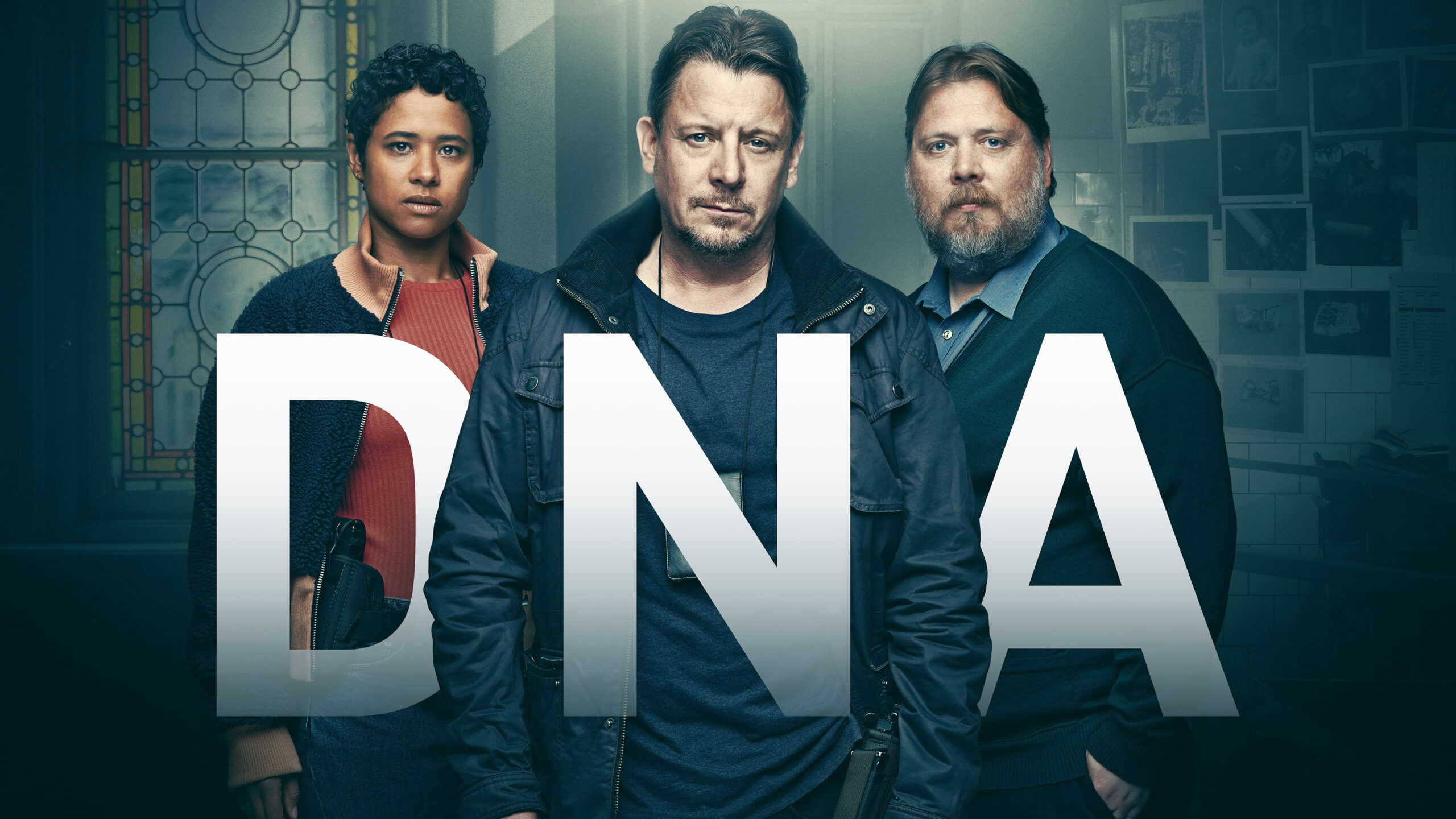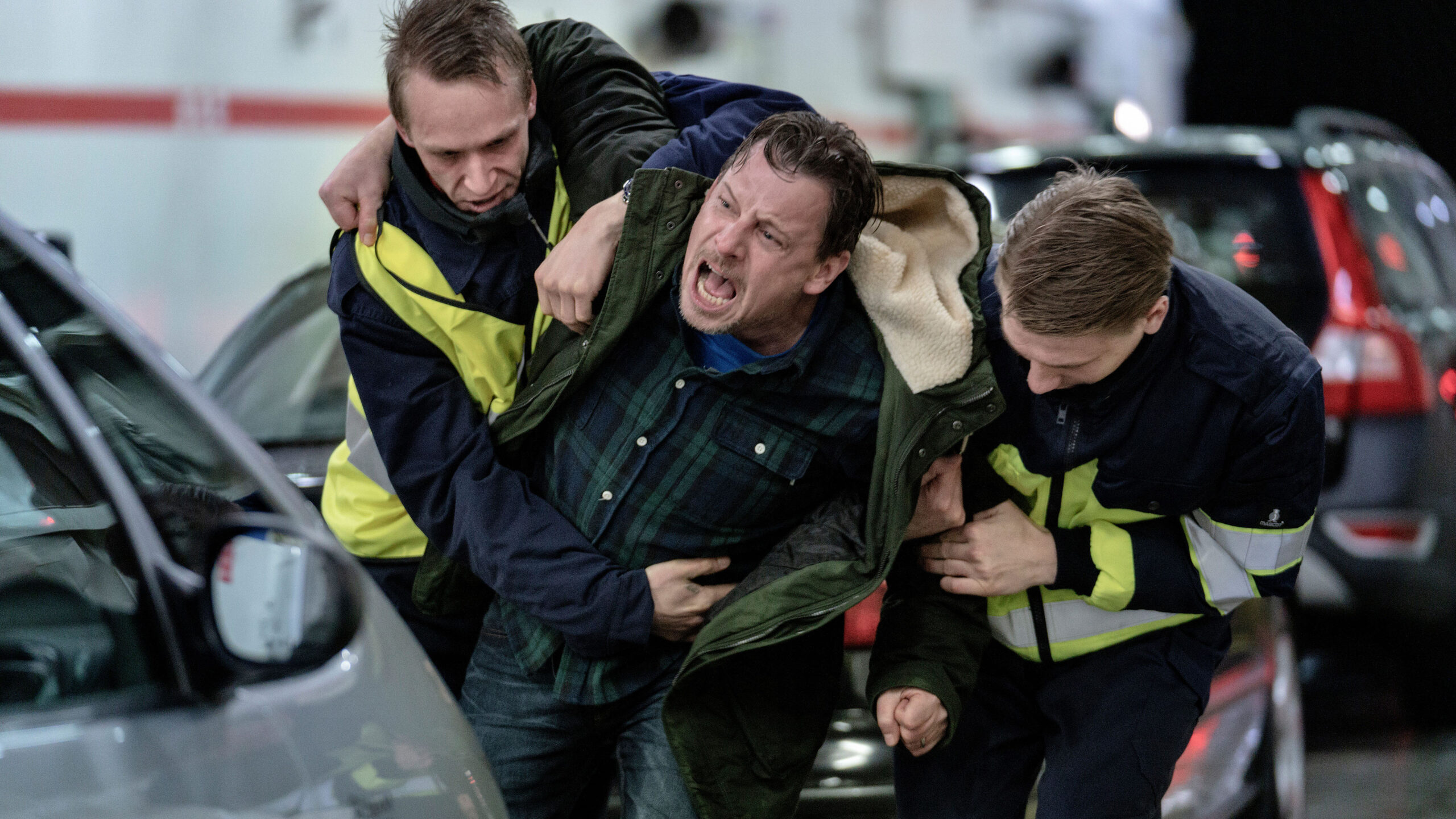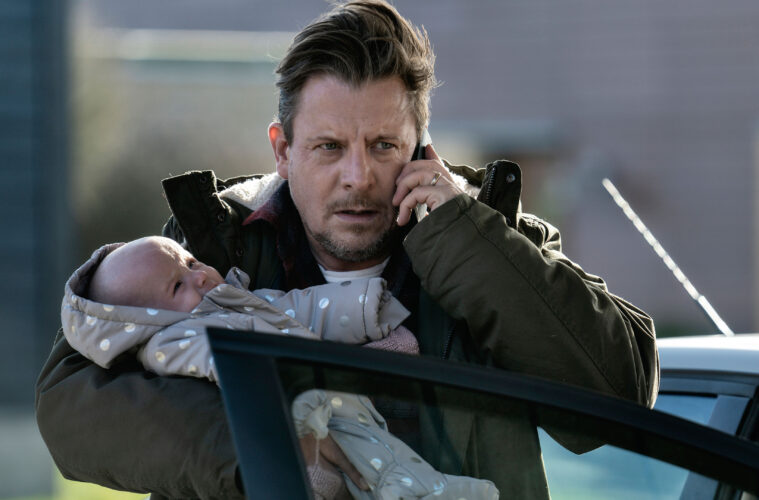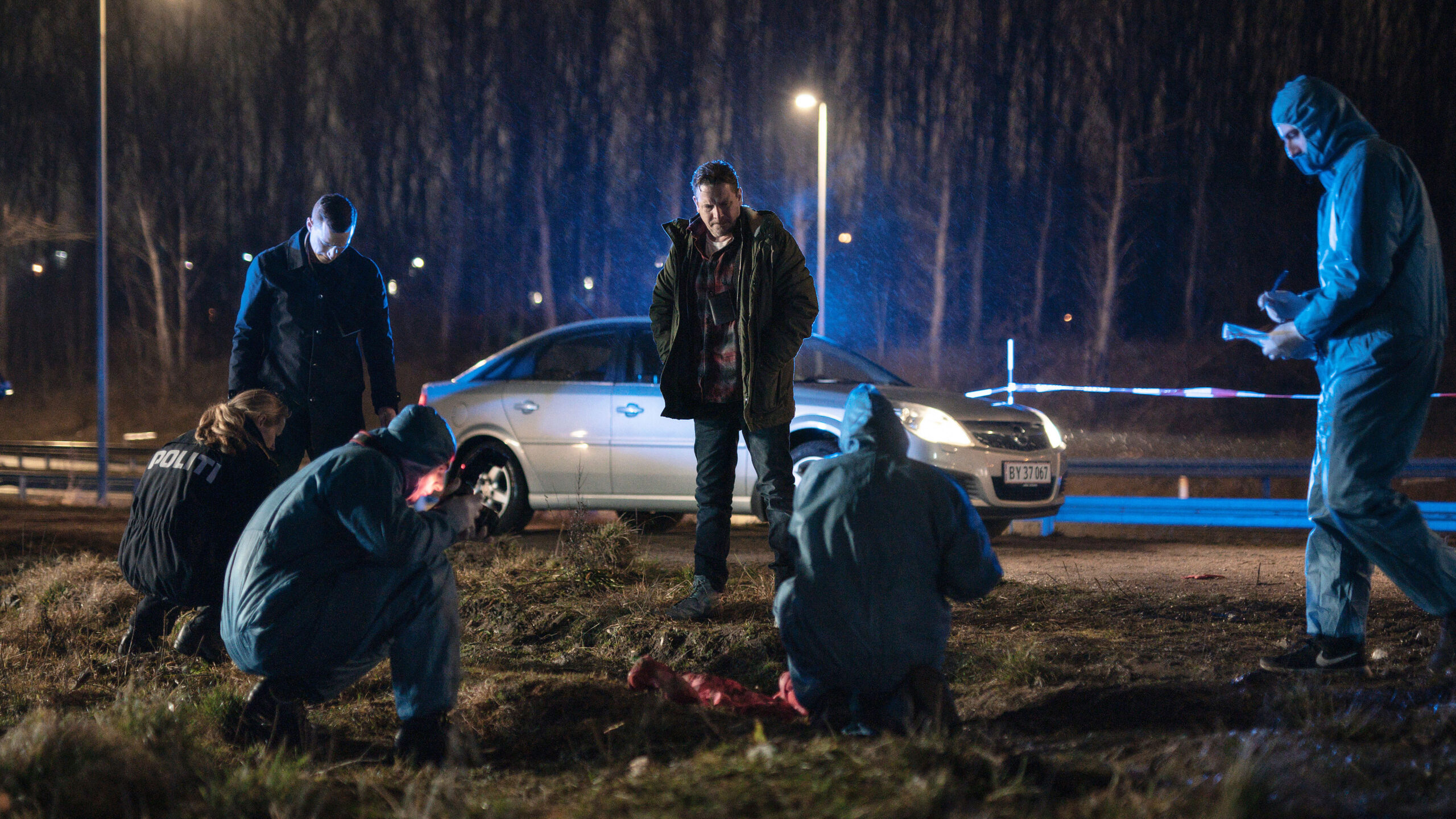DNA is a Danish thriller series created by the renowned scriptwriter Torleif Hoppe, which was bought by the BBC last year and is now available in Canada on CBC Gem. DNA follows Rolf Larsen, a detective from the Copenhagen police department confronted with a horrific scenario for any parent. We interviewed Torleif Hoppe about his 2019 series, his reasoning behind the narrative, and the show now premiering in Canada.
 As he investigates the case of a missing child, apparently abducted, Larsen himself gets pulled into a nightmare of his own. Larsen’s baby daughter goes missing when he was supposed to take care of her, which causes his life to change drastically, and him to carry the burden for five long years.
As he investigates the case of a missing child, apparently abducted, Larsen himself gets pulled into a nightmare of his own. Larsen’s baby daughter goes missing when he was supposed to take care of her, which causes his life to change drastically, and him to carry the burden for five long years.
Five years after his daughter’s disappearance, Larsen stumbles upon a case that generates much controversy and possibility in the Copenhagen police. The DNA registry had been malfunctioning and much evidence was lost or mismatched. This flaw in the system means the initial case of the missing child has been wrongly closed and by reopening the investigation he discovers an international child trafficking ring.
Watch the interview here, or read the full extract below.
Let’s talk about when you began writing police dramas. I wanted to know what drew you to this mystery genre as a whole? What was the most appealing about it?
When I started writing on DNA, the first season, I was actually being asked by ARTE in France and TV2 in Denmark if I could come up with the story a for crime story. They were interested in– specifically TV2 in Denmark they wanted something like a story of the week kind of show actually. And I said I thought that was a boring idea because personally, I don’t watch that kind of show, like I have never done anything like that before so it seemed kind of strange and old fashioned in a way. So I tried, you know, to see if I could come up with something. I made a story where I had like a story of the week type of story for each episode and then I had like a long story that was a personal story for the investigator in the story. Something about a missing child that I thought was appealing because I had children of my own so I thought that would be an interesting thing to work with. I knew how emotional that was. And I made outlines for all these episodes and then, the TV station they had a new commissioning editor, and he read it and said “that’s really exciting.” He loved it. And then he said, “I really like the sort of the personal story that runs through all the episodes, but doesn’t this sort of story of the week, case by case seem a bit old-fashioned?” And I was like, “Well, that’s what I told you a year ago before I started writing on this.” And then I said, “Well, you should have listened to me before I started doing all this.” But, eventually, I knew that he was right because that’s how I felt about it one year prior to that, so I just, I just sort of went home and changed the whole thing.

I don’t know if that’s an answer to your question. Actually, what I felt about writing a crime story. I’ve done it before with The Killing and other shows, and I kind of felt that I would like to do something that was not about so much like a policeman going to work solving other people’s problems, but something about a person who was kind of more, you know personally engaged, solving a mystery that was personal to him and closer to home. So that’s why I decided to make it a story about the worst thing I could imagine: something that happened with my kids, something that I would sort of do anything to solve. And that’s how I came up with it. That was sort of my main thing, it had to be a personal story for the person investigating and not really a police story, because I kind of felt that, I mean I’m not particularly interested in policemen.
I’m interested in people and what people do, more in the sense of human dilemmas, more than solving a riddle. So that’s, I guess that was, that was what made me decide to make it a story about a man and his missing child.
Can you tell us about the real-life event that inspired your story?
Yeah, when I was first thinking about this was before it actually became what it is, and I was trying to come up with an idea for a story of the week kind of show, I did some research and I found that there was this story that was interesting about the Danish DNA register. I mean, the whole DNA technology is something that has evolved over the last, in police work, 30 years or so. And obviously, there are flaws when you start creating a new technology. And there was a story about an error in the register that certain matches in the DNA register just didn’t pop up in the system. And at some point, they realize that that’s been going on since the beginning of the register which meant that important evidence and matches, in all kinds of cases, just didn’t come up so they suddenly there was this risk of cases that were solved incorrectly. They found out that there were these flaws in the system and, obviously, that’s not good when you’re dealing with serious crime cases. So my idea was actually to make like a system, so I could sort of reopen old cases that were resolved incorrectly or you know, because of this new evidence. That’s actually what starts the first season, basically, that it turns out that what everyone thought was the truth may not be the truth after all.
From the very end of the first episode, and through the events that happen in the second and third episodes, the viewer can grasp the growing suspense in the missing children and the girls. So, when writing, how did you go around creating suspense and building it progressively across the episodes?
I think my method is– I just write and I talk to myself, I use whiteboards, I kind of create a journey, so to speak. And then I rewrite it all the time. I mean that’s, for me [the suspense], it’s very much about keeping myself curious on where the story takes me and try not to explain what happens as much as to put myself in the situation of the other people involved, and try to follow and sort of uncover whatever they’re uncovering from their point of view. Basically, I think for me, suspense is many things, it’s also a matter of how you tell the story how you, how you unfold it. But also a matter of telling a story that has an emotional impact, because I suspense has to be an emotional suspense, and not just sort of a ‘technical suspense’ if that makes sense. I think for me, if it becomes too technical, I don’t really care. But if it’s something that involves things that are highly emotional, much more is at stake and the more there’s that stake, the more suspenseful to me.
Julita is a Polish teenager whose story is intertwined with Larsen’s. How did the idea of creating characters such as Julita come up?
Actually, it came up because I first wrote the story with just one strand entirely following Larsen and his investigation. And when I came up with the story, I did a lot of research because I wanted to make a story that was about real dilemmas and about real people who I could identify myself with. And when I came up with the story for Julita, at first it was just a story that I only followed through Rolf [Larsen]’s investigation, his point of view, but eventually, I realized that I was so much more interested in that story. So, I kind of wanted not to just experience of secondhand, through Rolf. I would like to experience that story with her. So actually, the Julita strand, kind of evolved quite late in the process, because I realized that I just wanted to tell that story too, through her own eyes. It turned out to be a good choice I think because it just made the narrative much more interesting, there were two parallel storylines that I was selling and trying to make them talk together and create a narrative in sort of two tracks.
What was your overall intention with the series? Did you have a political purpose in mind while creating it?
Not really, no. I don’t work that way, it’s not like I have like a political statement I want to tell, not from the start, actually. I think for me it’s much more about finding the story that I like and finding a story that makes sense in more than one way and I definitely want it to be entertaining but I think it’s much more entertaining if it’s about something that actually is relevant. And I think it’s not a statement, but I think pretty much the story, from the way I work– it’s actually quite late in the process that it came to reach that point when it was about this kind of activity that involves the children. Yeah, I think the story created the statement. It was not my statement from the beginning it was something that, that sort of came out of where the story went.
How do you feel about the series now premiering in Canada? Two years later after its creation.
how I feel about it now. First of all, I’m really happy that people in Canada want to watch what I did, because, I mean, that’s an honour. And, obviously, it’s a while ago since I wrote it and right now I’m working on a second series, so that’s very much where I am. That’s that’s where my focus is at the moment. But, yeah I work on the second series because I liked the first series and other people did too, so they asked me to make a second [season]. So, yeah, I mean, it’s quite amazing, you can do something, you can work on something and then, it just starts travelling, it sort of gets his own life. It’s no longer my story, it’s just out there. Whoever watches it, and hopefully enjoys it.



